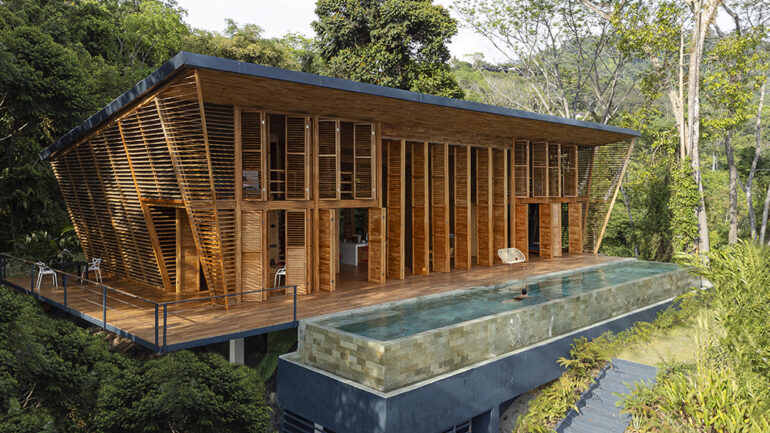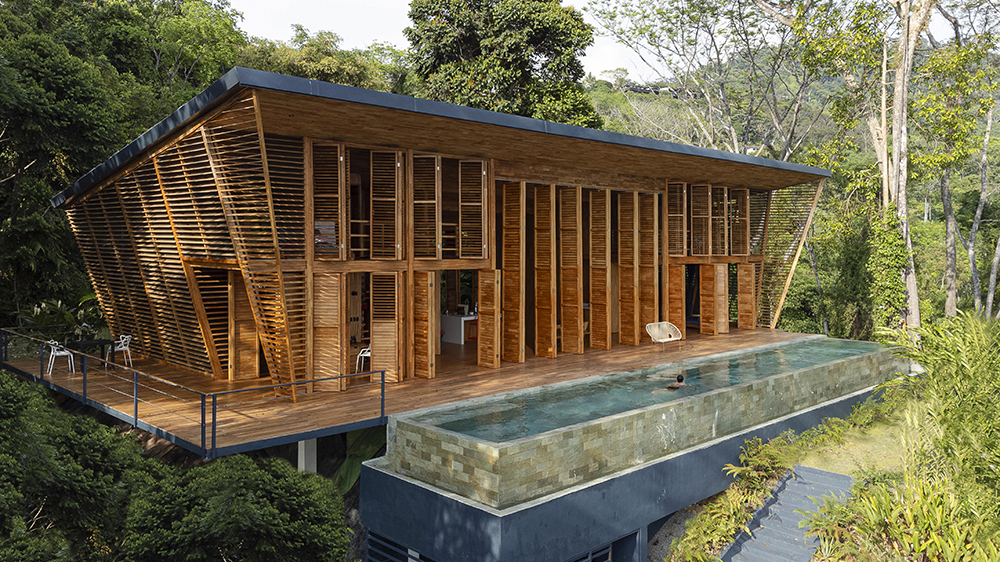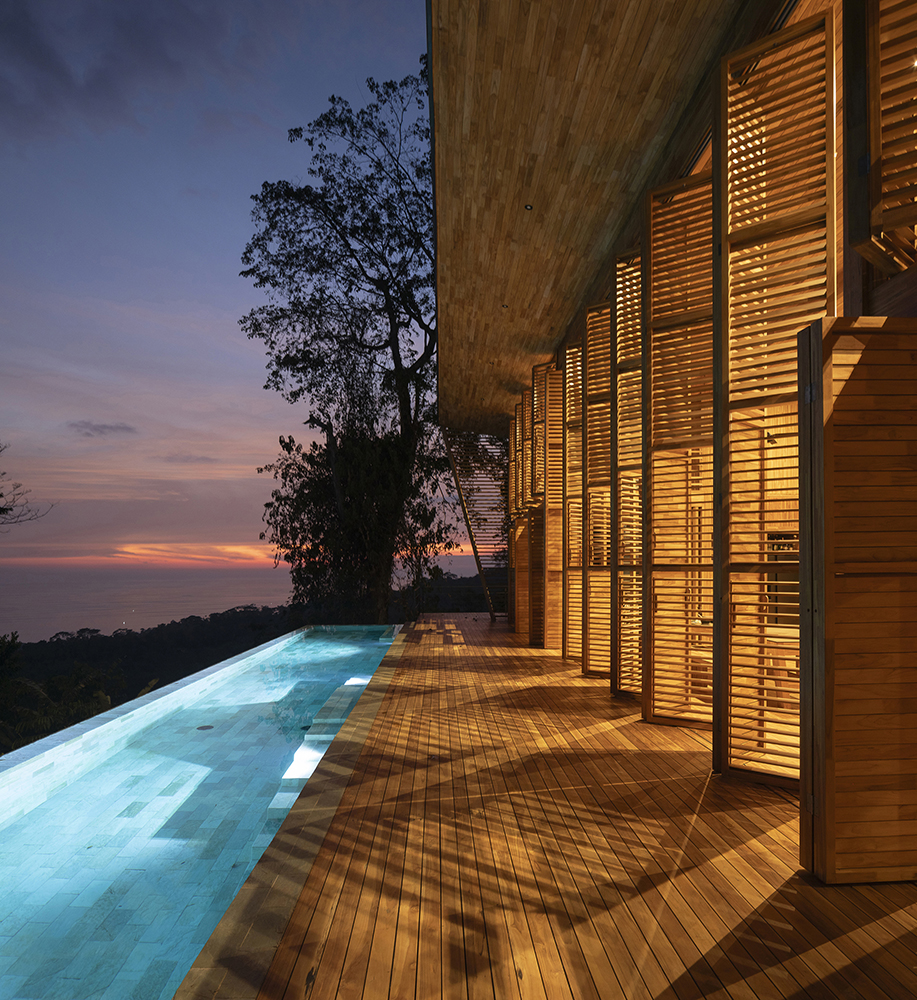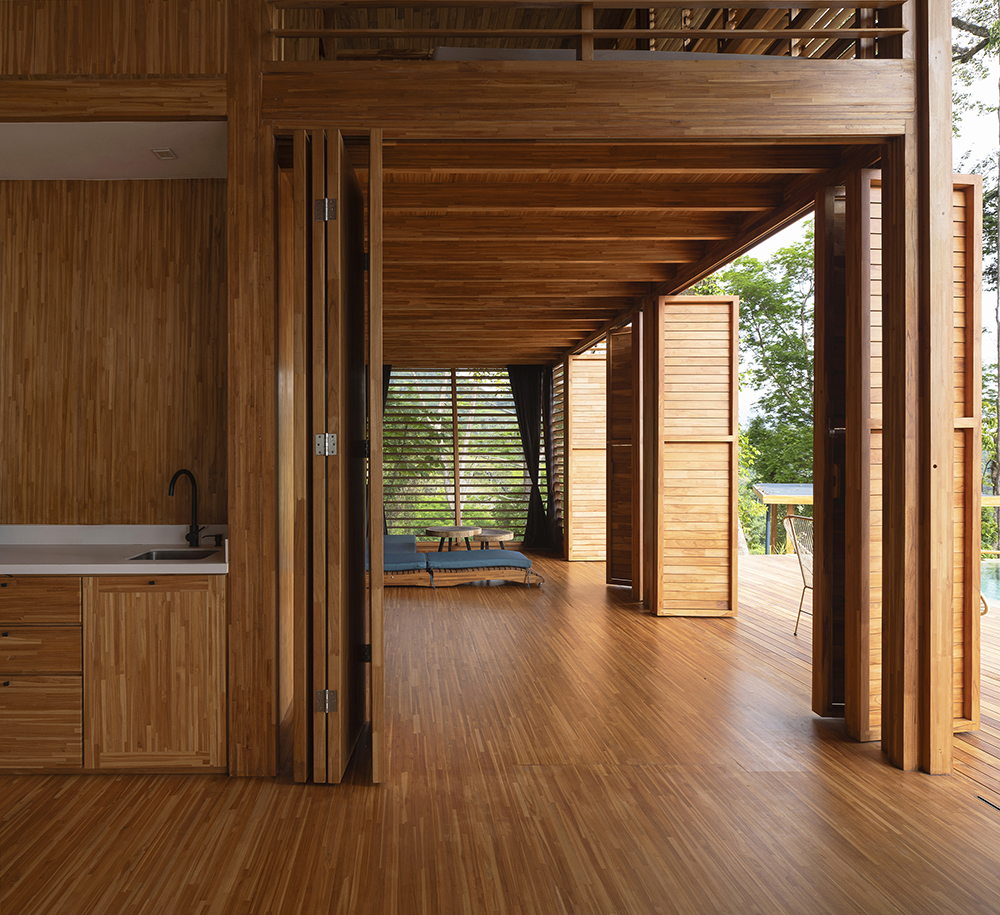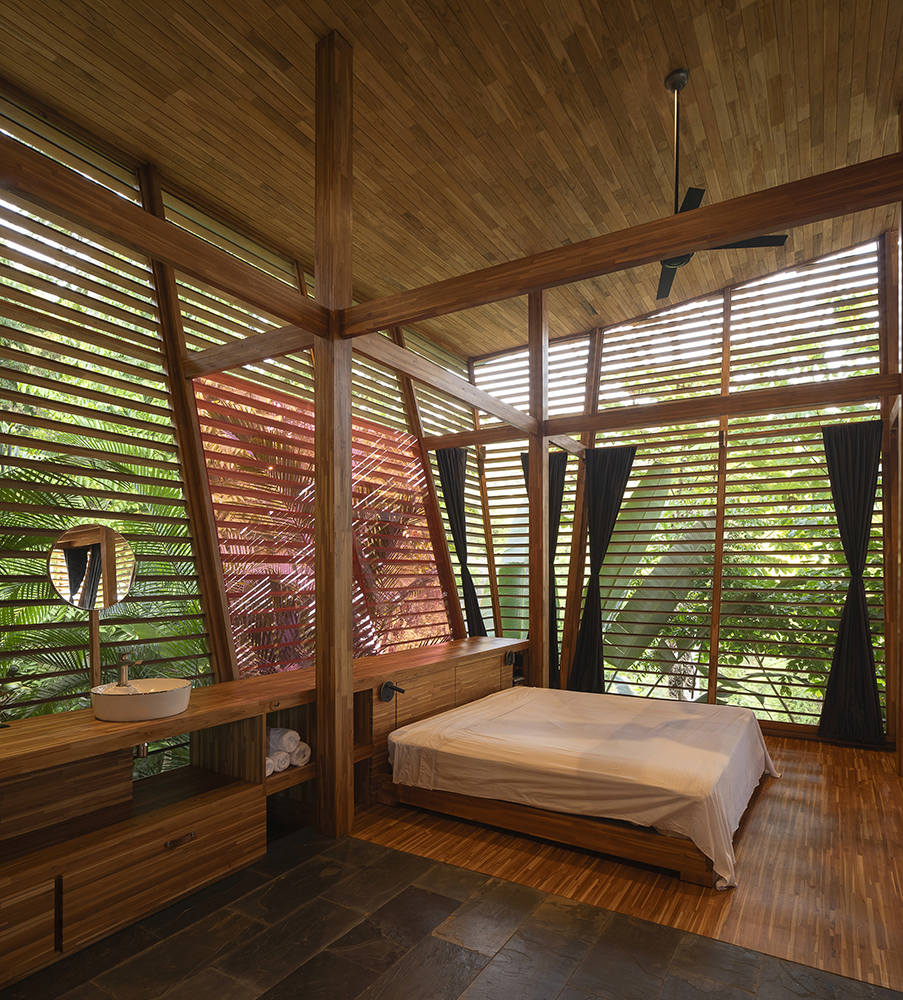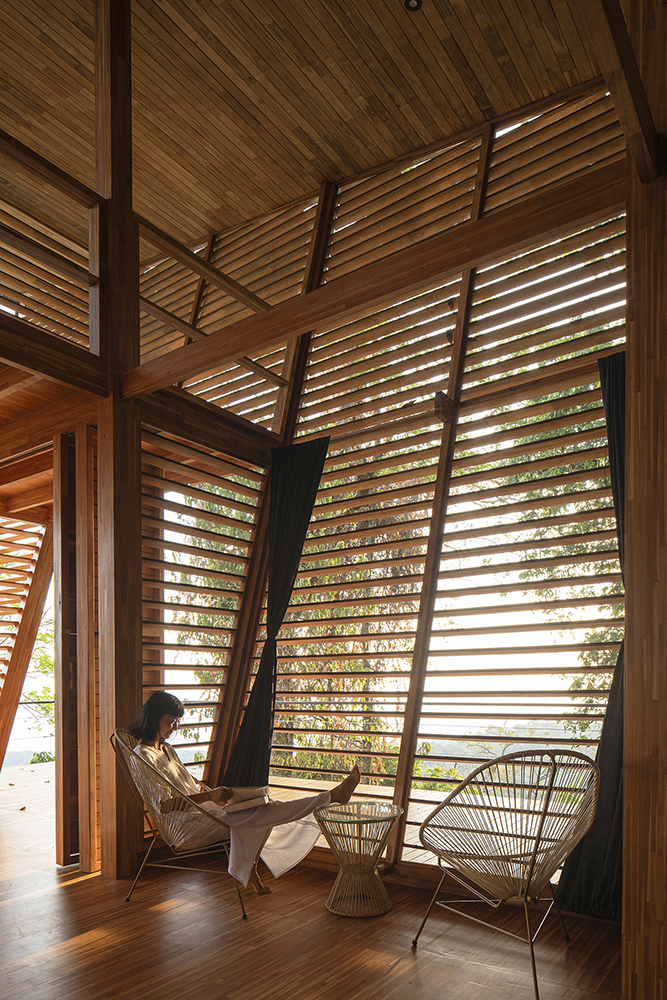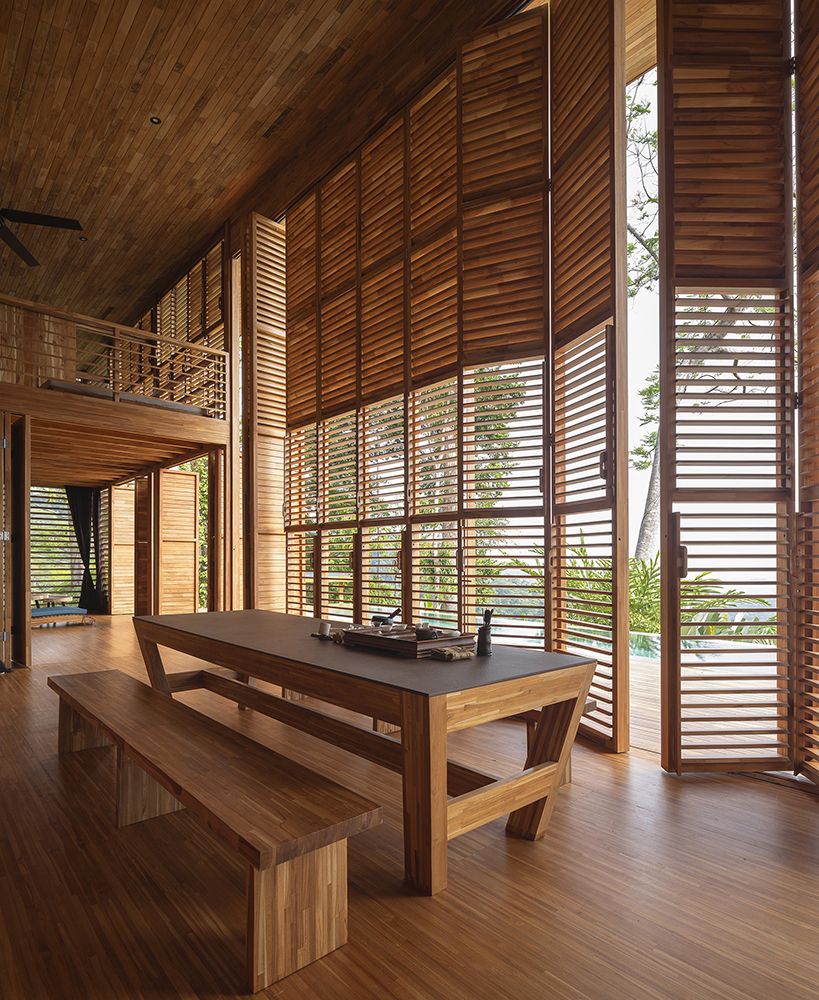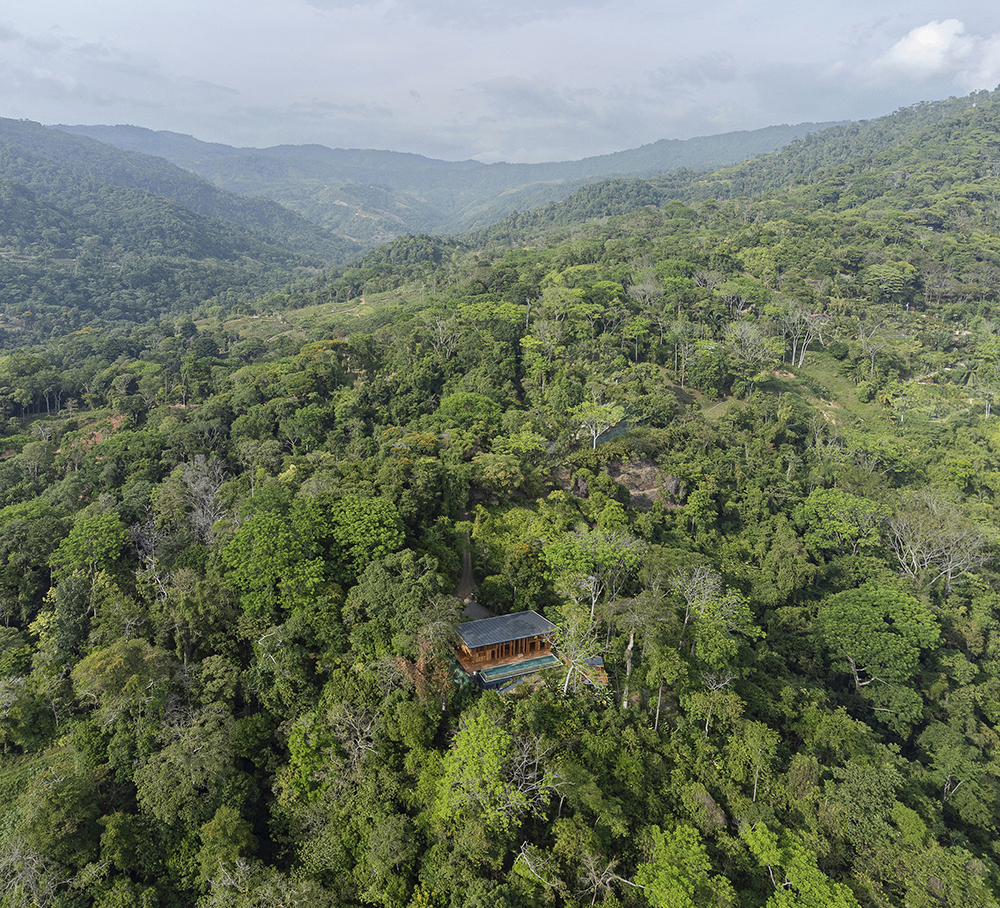Architect / Designer:
Studio:
Design Team:
Copyright:
Country:
The No Footprint Wood House is located along the southern Pacific coast of Costa Rica. Its bioclimatic design integrates with the surrounding lush tropical forests and natural habitat. The project forms part of the multi-award winning No Footprint House series (NFH). Climate-responsive building variations are based on passive design strategies such as site-specific positioning and the use of natural resources. Industrial building techniques and prefabricated components are combined with locally harvested and regenerative construction materials. Since the creation of the first NFH prototype in 2018, a broad range of typologies have been built in response to the diverse micro-climatic conditions of Costa Rica. New and alternative construction materials have been developed to continuously improve the overall project performance. For the most recent wood house, which was built on an isolated site in the lush forested mountains above the village of Uvita, a laminated teak wood system was developed in collaboration with the national building industry and international expertise. The process resulted in a systemic kit of parts, including columns, beams, panels and connectors. Besides developing an innovative construction system, the project impulses the training of workmanship to engage with the new construction techniques.
The overall NFH project was developed as a response to a roadmap for achieving sector-wide decarbonization in Costa Rica. Worldwide, construction contributes significantly to environmental contamination and the production of greenhouse gases. The first NFH prototype showed how to lower emissions through industrial and prefabricated building techniques in combination with the principles of bioclimatic architecture. Started as a research project, the NFH was first introduced at the United Nations conferences on climate change in 2019. Based on the initial achievements and success of the project, a dialogue was established with the local construction industry to continuously improve project performance and lower the carbon footprint of the buildings. Today, the NFH can be offered with a decarbonization rate of 80%. The remaining 20% of carbon footprint is compensated by the on-site production of renewable energy, which forms an integral part of the overall building system and catalogue. The systemic catalogue of selected building materials and components makes it easy for clients to choose from a pre-selected and varied range of sustainable construction materials that stimulate local and circular economies. With the No Footprint House, we like to speak of integral sustainability and regenerative development in terms of the socio-economic, ecological and spatial project performance. The efficiency of the NFH in all areas, from design to construction and maintenance, makes decarbonization an affordable reality. It enables individual private entities to contribute to the bigger collective goal of decarbonization at a national scale.
A-01 (A Company / A Foundation)
A-01 is an interdisciplinary network organization. We intend to break the boundaries of a single professional perspective in order to allow for a holistic approach that shapes our products. A-01 envisions a long-term impact that involves economic growth, a high quality spatial surrounding, a responsible use of natural resources and an equal social development. This complex set of factors is also referred to as the 4E of integral sustainability: Economy, Engineering, Environment, and Equity. All assignments are carried out with a custom-fit teams of experts and entities, introducing A Company and its non-profit counterpart A Foundation as operational vehicles. While the company is dedicated to local consulting and planning services, the foundation researches and communicates transformative processes with regards to the urban and rural condition worldwide. Moreover, we formulate projects to support local populations that have become vulnerable due to these globally shifting conditions.


